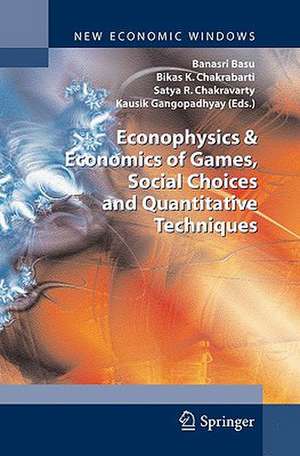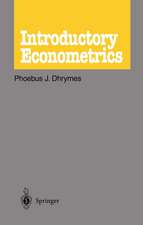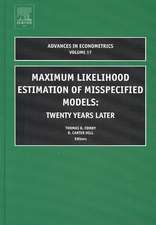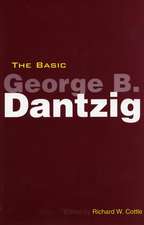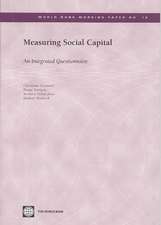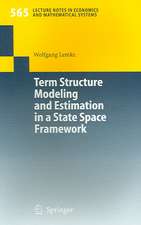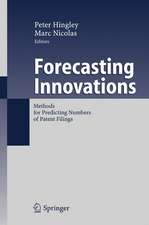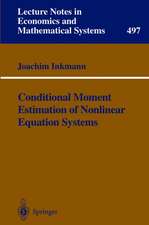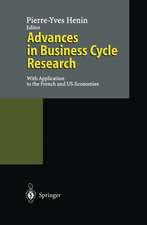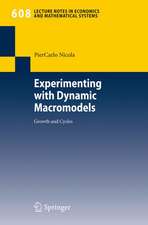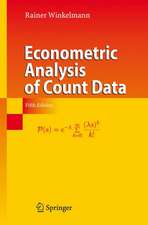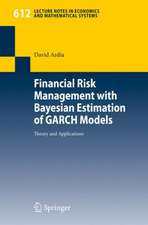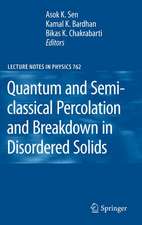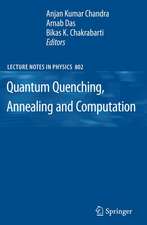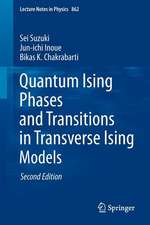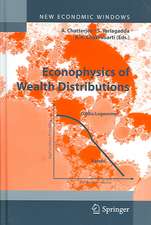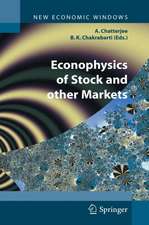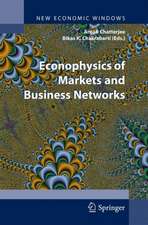Econophysics & Economics of Games, Social Choices and Quantitative Techniques: New Economic Windows
Editat de Banasri Basu, Bikas K. Chakrabarti, Satya R. Chakravarty, Kausik Gangopadhyayen Limba Engleză Hardback – dec 2009
| Toate formatele și edițiile | Preț | Express |
|---|---|---|
| Paperback (1) | 1004.36 lei 6-8 săpt. | |
| Springer – 23 aug 2016 | 1004.36 lei 6-8 săpt. | |
| Hardback (1) | 1395.63 lei 6-8 săpt. | |
| Springer – dec 2009 | 1395.63 lei 6-8 săpt. |
Din seria New Economic Windows
-
 Preț: 363.47 lei
Preț: 363.47 lei - 18%
 Preț: 953.97 lei
Preț: 953.97 lei - 15%
 Preț: 647.08 lei
Preț: 647.08 lei -
 Preț: 398.74 lei
Preț: 398.74 lei -
 Preț: 386.81 lei
Preț: 386.81 lei - 15%
 Preț: 635.15 lei
Preț: 635.15 lei - 18%
 Preț: 791.09 lei
Preț: 791.09 lei - 18%
 Preț: 781.77 lei
Preț: 781.77 lei - 18%
 Preț: 951.29 lei
Preț: 951.29 lei -
 Preț: 379.09 lei
Preț: 379.09 lei - 15%
 Preț: 644.63 lei
Preț: 644.63 lei -
 Preț: 399.67 lei
Preț: 399.67 lei -
 Preț: 390.46 lei
Preț: 390.46 lei -
 Preț: 386.00 lei
Preț: 386.00 lei - 18%
 Preț: 941.82 lei
Preț: 941.82 lei -
 Preț: 389.70 lei
Preț: 389.70 lei - 18%
 Preț: 729.23 lei
Preț: 729.23 lei - 18%
 Preț: 951.91 lei
Preț: 951.91 lei - 18%
 Preț: 949.10 lei
Preț: 949.10 lei - 15%
 Preț: 643.00 lei
Preț: 643.00 lei - 15%
 Preț: 645.47 lei
Preț: 645.47 lei - 15%
 Preț: 585.40 lei
Preț: 585.40 lei - 15%
 Preț: 695.53 lei
Preț: 695.53 lei - 15%
 Preț: 636.63 lei
Preț: 636.63 lei - 18%
 Preț: 786.66 lei
Preț: 786.66 lei - 15%
 Preț: 634.18 lei
Preț: 634.18 lei - 18%
 Preț: 1112.15 lei
Preț: 1112.15 lei
Preț: 1395.63 lei
Preț vechi: 1701.99 lei
-18% Nou
Puncte Express: 2093
Preț estimativ în valută:
267.09€ • 277.81$ • 220.50£
267.09€ • 277.81$ • 220.50£
Carte tipărită la comandă
Livrare economică 15-29 aprilie
Preluare comenzi: 021 569.72.76
Specificații
ISBN-13: 9788847015005
ISBN-10: 8847015006
Pagini: 408
Ilustrații: XIV, 394 p.
Greutate: 0.86 kg
Ediția:2010
Editura: Springer
Colecția Springer
Seria New Economic Windows
Locul publicării:Milano, Italy
ISBN-10: 8847015006
Pagini: 408
Ilustrații: XIV, 394 p.
Greutate: 0.86 kg
Ediția:2010
Editura: Springer
Colecția Springer
Seria New Economic Windows
Locul publicării:Milano, Italy
Public țintă
Professional/practitionerCuprins
Econophysics of Games and Social Choices.- Kolkata Paise Restaurant Problem in Some Uniform Learning Strategy Limits.- Cycle Monotonicity in Scheduling Models.- Reinforced Learning in Market Games.- Mechanisms Supporting Cooperation for the Evolutionary Prisoner’s Dilemma Games.- Economic Applications of Quantum Information Processing.- Using Many-Body Entanglement for Coordinated Action in Game Theory Problems.- Condensation Phenomena and Pareto Distribution in Disordered Urn Models.- Economic Interactions and the Distribution of Wealth.- Wealth Redistribution in Boltzmann-like Models of Conservative Economies.- Multi-species Models in Econo- and Sociophysics.- The Morphology of Urban Agglomerations for Developing Countries: A Case Study with China.- A Mean-Field Model of Financial Markets: Reproducing Long Tailed Distributions and Volatility Correlations.- Statistical Properties of Fluctuations: A Method to Check Market Behavior.- Modeling Saturation in Industrial Growth.- The Kuznets Curve and the Inequality Process.- Monitoring the Teaching — Learning Process via an Entropy Based Index.- Technology Level in the Industrial Supply Chain: Thermodynamic Concept.- Discussions and Comments in Econophys Kolkata IV.- Contributions to Quantitative Economics.- On Multi-Utility Representation of Equitable Intergenerational Preferences.- Variable Populations and Inequality-Sensitive Ethical Judgments.- A Model of Income Distribution.- Statistical Database of the Indian Economy: Need for New Directions.- Does Parental Education Protect Child Health? Some Evidence from Rural Udaipur.- Food Security and Crop Diversification: Can West Bengal Achieve Both?.- Estimating Equivalence Scales Through Engel Curve Analysis.- Testing for Absolute Convergence: A Panel Data Approach.- Goodwin’s Growth Cycles: A Reconsideration.- Human Capital Accumulation, Economic Growth and Educational Subsidy Policy in a Dual Economy.- Arms Trade and Conflict Resolution: A Trade-Theoretic Analysis.- Trade andWage Inequality with Endogenous Skill Formation.- Dominant Strategy Implementation in Multi-unit Allocation Problems.- Allocation through Reduction on Minimum Cost Spanning Tree Games.- Unmediated and Mediated Communication Equilibria of Battle of the Sexes with Incomplete Information.- A Characterization Result on the Coincidence of the Prenucleolus and the Shapley Value.- The Ordinal Equivalence of the Johnston Index and the Established Notions of Power.- Reflecting on Market Size and Entry under Oligopoly.
Notă biografică
Banasri Basu is an Associate Professor at the Physics and Applied Mathematics Unit in the Indian Statistical Institute. The areas of her research interests include field theory of condensed matter systems, non-commutative quantum mechanics and entanglement in spin systems and she has in her credit about fifty scientific articles in international reputed journals, such as, Phys. Rev. B, J. Math. Phys., Eur. Phys. Lett., Phys. Lett. A. Recently, she is working in the empirical avenues in Econophysics.
Bikas K. Chakrabarti has professional interest in statistical physics, condensed matter physics, computational physics, and their application to social sciences. He is, at present, Sr. Professor of Physics, Saha Institute of Nuclear Physics, Kolkata and Visiting Professor of Economics, Indian Statistical Institute, Kolkata. He has authored/co-authored more than 150 papers in refereed journals, 5 reviews (Eur. Phys. J. B, Phys. Rep., 3 Rev. Mod. Phys.), 2 books (Oxford Univ. Press, Springer), edited/co-edited 11 books (Allied, 2 Elsevier, 7 Springer, Wiley-VCH) and initiated, along with colleagues, the conference series: STATPHYS-KOLKATA in 1992. He has received the Shanti Swarup Bhatnagar Award, CSIR India (1997). He is a Fellow of the Indian Academy of Sciences, Bangalore and also of the Indian National Science Academy, New Delhi.
Satya R. Chakravarty is a Professor in the Economic Research Unit of the Indian Statistical Institute, Kolkata. Since 1984 he has been associated with various research and teaching positions with the Indian Statistical Institute. He has published scores of research papers in many internationally known journals, including, Journal of Economic Theory, Econometrica, Games and Economic Behavior, Economic Theory, International Economic Review, Social Choice and Welfare, Journal of Development Economics, Canadian Journal of Economics, Mathematical Social Sciences, Theory and Decision and Review of Income and Wealth . He has authored four books-Ethical Social Index Numbers, Issues in Industrial Economics and Inequality, Polarization and Poverty: Advances in distributional Analysis and Microeconomics. His research interests lie in social choice, measurement of inequality, poverty and well-being, game theory, industrial organization and microeconomics. He has acted as an external adviser to the World Bank and as an adviser to the National Council of Social Policy Evaluation, Mexico. Prof. Chakravarty was awarded the Mahalanobis Memorial Prize in 1994 by the Indian Econometric Society.
Kausik Gangopadhyay has received his Ph.D. degree in Economics from the University of Rochester. He is currently a Visiting Scientist at the Economic Research Unit in the Indian Statistical Institute, Kolkata.
Bikas K. Chakrabarti has professional interest in statistical physics, condensed matter physics, computational physics, and their application to social sciences. He is, at present, Sr. Professor of Physics, Saha Institute of Nuclear Physics, Kolkata and Visiting Professor of Economics, Indian Statistical Institute, Kolkata. He has authored/co-authored more than 150 papers in refereed journals, 5 reviews (Eur. Phys. J. B, Phys. Rep., 3 Rev. Mod. Phys.), 2 books (Oxford Univ. Press, Springer), edited/co-edited 11 books (Allied, 2 Elsevier, 7 Springer, Wiley-VCH) and initiated, along with colleagues, the conference series: STATPHYS-KOLKATA in 1992. He has received the Shanti Swarup Bhatnagar Award, CSIR India (1997). He is a Fellow of the Indian Academy of Sciences, Bangalore and also of the Indian National Science Academy, New Delhi.
Satya R. Chakravarty is a Professor in the Economic Research Unit of the Indian Statistical Institute, Kolkata. Since 1984 he has been associated with various research and teaching positions with the Indian Statistical Institute. He has published scores of research papers in many internationally known journals, including, Journal of Economic Theory, Econometrica, Games and Economic Behavior, Economic Theory, International Economic Review, Social Choice and Welfare, Journal of Development Economics, Canadian Journal of Economics, Mathematical Social Sciences, Theory and Decision and Review of Income and Wealth . He has authored four books-Ethical Social Index Numbers, Issues in Industrial Economics and Inequality, Polarization and Poverty: Advances in distributional Analysis and Microeconomics. His research interests lie in social choice, measurement of inequality, poverty and well-being, game theory, industrial organization and microeconomics. He has acted as an external adviser to the World Bank and as an adviser to the National Council of Social Policy Evaluation, Mexico. Prof. Chakravarty was awarded the Mahalanobis Memorial Prize in 1994 by the Indian Econometric Society.
Kausik Gangopadhyay has received his Ph.D. degree in Economics from the University of Rochester. He is currently a Visiting Scientist at the Economic Research Unit in the Indian Statistical Institute, Kolkata.
Textul de pe ultima copertă
The combined efforts of the Physicists and the Economists in recent years in analyzing and modelling various dynamic phenomena in monetary and social systems have led to encouraging developments, generally classified under the title of Econophysics. These developments share a common ambition with the already established field of Quantitative Economics. This volume intends to offer the reader a glimpse of these two parallel initiatives by collecting review papers written by well-known experts in the respective research frontiers in one cover.
This massive book presents a unique combination of research papers contributed almost equally by Physicists and Economists. Additional contributions from Computer Scientists and Mathematicians are also included in this volume. The book consists of two parts: the first part concentrates on Econophysics problems and the second part stresses on various quantitative issues in Economics. Both parts specialize on frontier problems inGames and Social Choices.
This massive book presents a unique combination of research papers contributed almost equally by Physicists and Economists. Additional contributions from Computer Scientists and Mathematicians are also included in this volume. The book consists of two parts: the first part concentrates on Econophysics problems and the second part stresses on various quantitative issues in Economics. Both parts specialize on frontier problems inGames and Social Choices.
